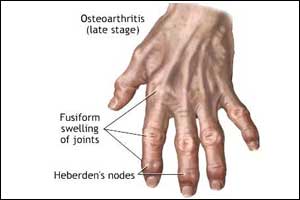- Home
- Editorial
- News
- Practice Guidelines
- Anesthesiology Guidelines
- Cancer Guidelines
- Cardiac Sciences Guidelines
- Critical Care Guidelines
- Dentistry Guidelines
- Dermatology Guidelines
- Diabetes and Endo Guidelines
- Diagnostics Guidelines
- ENT Guidelines
- Featured Practice Guidelines
- Gastroenterology Guidelines
- Geriatrics Guidelines
- Medicine Guidelines
- Nephrology Guidelines
- Neurosciences Guidelines
- Obs and Gynae Guidelines
- Ophthalmology Guidelines
- Orthopaedics Guidelines
- Paediatrics Guidelines
- Psychiatry Guidelines
- Pulmonology Guidelines
- Radiology Guidelines
- Surgery Guidelines
- Urology Guidelines
American College of Rheumatology encourages Use of Biosimilar drugs in White paper

In a new white paper published by American College of Rheumatology (ACR) with title “The Science Behind Biosimilars – Entering a New Era of Biologic Therapy,”it has been recommended that biosimilars may be incorporated into treatment plans of patients with rheumatic diseases where appropriate. Authors note the only anticipated advantage of a biosimilar over its reference product is lower cost, given that the two drugs should be therapeutically equivalent, and that biosimilars could play a crucial role in fostering competition that keeps high drug prices at bay. However, the degree to which availability of biosimilars in the U.S. will drive down the cost of biologic therapy remains to be seen.
The FDA has approved nine biosimilar medications, six of which are for treatment of rheumatic diseases, since the Biologics Price Competition and Innovation Act (BPCI Act) of 2009 was passed in an effort to reduce costs and increase patient’s access to biologics. As biosimilar usage increases, an extensive discussion about issues regarding immunogenicity, switching, and patient access has emerged. New recommendations for clinical practice have been made, based on continued evaluation from regulatory agencies and successful administration of biosimilars in Europe. Over the past few years, the ACR has voiced its support for FDA approval measures to ensure the safety of biosimilars as they become available in the U.S. market, including a proposal to require manufacturers to use robust switching studies and support for distinct naming conventions and billing codes to make post-marketing surveillance easier.
“The ACR has closely followed the development, evaluation, and approval processes for biosimilar agents, in addition to observing their successful use in other countries,” said Dr. S. Louis Bridges, Jr., MD, PhD, chair of the ACR’s Committee on Research and lead author of this paper. “We are now confident that providers can recommend biosimilars as a safe, effective, and affordable option to patients, where appropriate.”
Obstacles for patient accessibility include drug copayments for biosimilars that are nearly as expensive as those for the reference drug. Authors also anticipate pharmacy benefit managers (PBMs) will play a key role, explaining that the lower price of biosimilars could be a negative for their current business model.
“There are a variety of market-based and legislative factors that contribute to the accessibility of biosimilars,” said Dr. Angus Worthing, MD, chair of the ACR’s Government Affairs Committee and co-author of this paper. “While we have yet to see broad cost-saving benefits in the U.S. marketplace, efforts from health care advocates, legislative measures, and the introduction of additional biosimilar options could help relieve the financial burden of patients using these therapies.”
Authors of the paper are hopeful that continued use of biosimilars will improve patient access to biologic drugs, ensuring high-quality health care at a lower cost. To maintain exceptional standards of clinical practice, rheumatologists are urged to maintain a working knowledge of regulatory guidelines and policies, currently approved medications, and evolving research on biosimilars.

Disclaimer: This site is primarily intended for healthcare professionals. Any content/information on this website does not replace the advice of medical and/or health professionals and should not be construed as medical/diagnostic advice/endorsement or prescription. Use of this site is subject to our terms of use, privacy policy, advertisement policy. © 2020 Minerva Medical Treatment Pvt Ltd